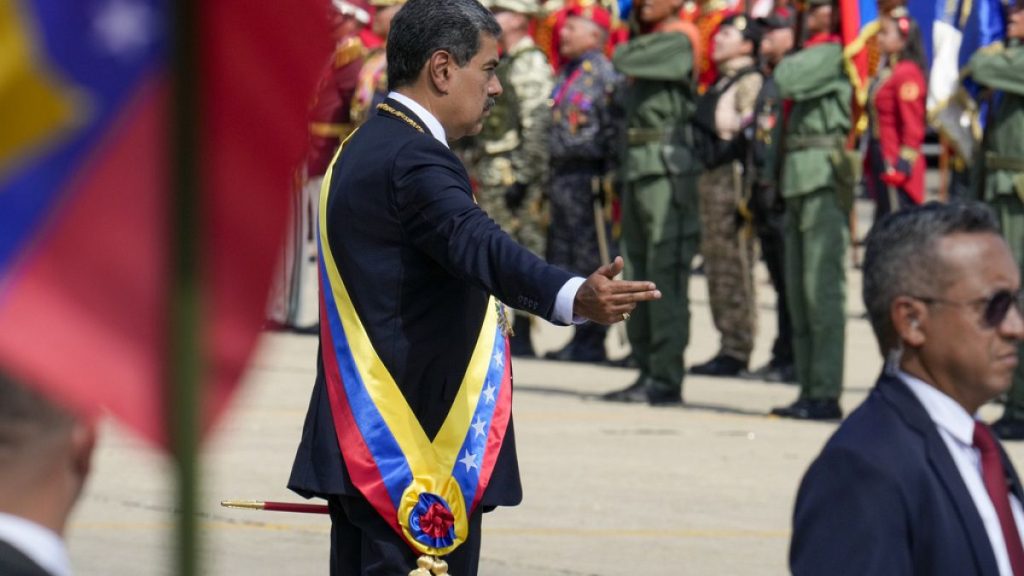The European Union has vehemently condemned the inauguration of Nicolás Maduro for a third term as President of Venezuela, citing serious concerns about the legitimacy of the electoral process and the escalating repression against political opposition and civil society. The EU’s High Representative for Foreign Policy, Kaja Kallas, declared the announced election results unverifiable and unrepresentative of the Venezuelan people’s will. This lack of democratic legitimacy, according to Kallas, renders Maduro’s presidency illegitimate. The EU has expressed deep regret over the Venezuelan authorities’ disregard for the democratic aspirations of their citizens, further solidifying the bloc’s stance against the current regime. This condemnation underscores a growing international concern over the erosion of democratic processes and human rights within Venezuela.
The European Union’s denouncement goes beyond mere disapproval of the electoral process. Kallas explicitly stated that Maduro “lacks the legitimacy of a democratically elected president.” This pointed assertion directly challenges the foundation of Maduro’s authority and aligns with the EU’s consistent calls for free and fair elections in Venezuela. The EU’s condemnation comes amidst accusations of electoral fraud from prominent opposition figures like María Corina Machado and Edmundo González, further fueling concerns about the legitimacy of the electoral process and the integrity of democratic institutions in Venezuela. The EU’s stance reinforces its commitment to supporting democratic principles and human rights, even as it navigates complex geopolitical landscapes.
The European Parliament, taking an even stronger stance, has called for Maduro to be brought to justice rather than being sworn into office. This represents a significant escalation in the EU’s response, going beyond diplomatic condemnation and hinting at potential legal repercussions for Maduro and his regime. The Parliament’s stance is underscored by its official recognition of opposition leader Edmundo González as the legitimate president of Venezuela, a move unmatched by any other European institution. This unequivocal support for González distinguishes the Parliament’s position and highlights the deep divisions within Venezuela’s political landscape.
This recognition of González, along with the joint awarding of the Sakharov Prize for Freedom of Thought to him and María Corina Machado, further emphasizes the European Parliament’s commitment to supporting the Venezuelan opposition and highlighting the plight of those fighting for democracy and human rights in the country. The Sakharov Prize, a prestigious award recognizing individuals and groups who have dedicated their lives to the defense of human rights and freedom of thought, underscores the international community’s recognition of the struggles faced by the Venezuelan opposition. The EU and the European Parliament’s actions represent a growing international consensus regarding the deteriorating political and human rights situation in Venezuela.
Beyond diplomatic condemnation, the European Union has taken concrete actions to address the situation in Venezuela. The EU Council has imposed sanctions on 15 individuals deemed responsible for undermining democracy, the rule of law, and human rights within the country. These sanctions demonstrate the EU’s willingness to use targeted measures to pressure the Venezuelan government to address its human rights record and restore democratic processes. Simultaneously, the EU has emphasized that these sanctions are carefully designed to avoid harming the Venezuelan people or the country’s economy. This targeted approach aims to hold accountable those responsible for the political crisis while mitigating any negative impact on the general population.
The European Union’s response to the Venezuelan crisis reflects a multifaceted approach that combines diplomatic pressure, targeted sanctions, and vocal support for the democratic opposition. The EU has expressed solidarity with the Venezuelan people and called for an end to the repression and harassment of opposition figures, civil society actors, and their families. The EU’s call for the unconditional release of all political prisoners further reinforces its commitment to defending human rights and fundamental freedoms in Venezuela. The bloc continues to advocate for a peaceful resolution to the crisis, urging the Venezuelan authorities to respect the will of the people and engage in meaningful dialogue with the opposition to restore democracy and the rule of law. The EU’s sustained engagement underscores its long-term commitment to supporting a democratic and prosperous future for Venezuela.














